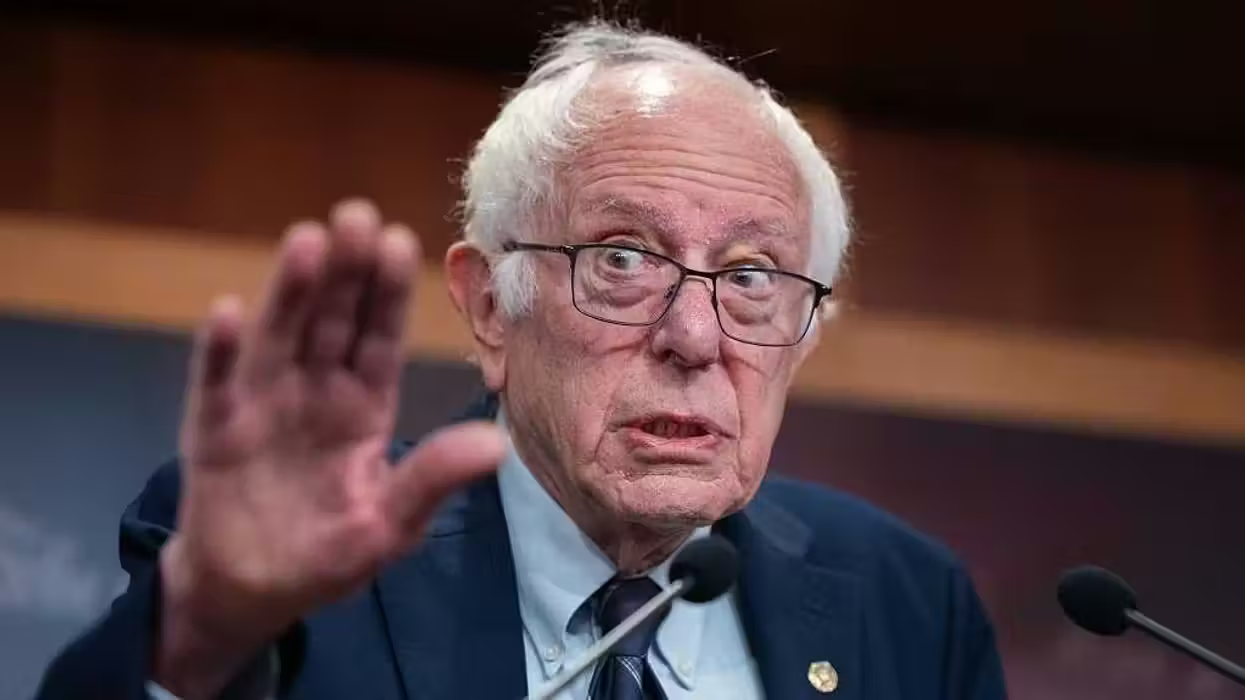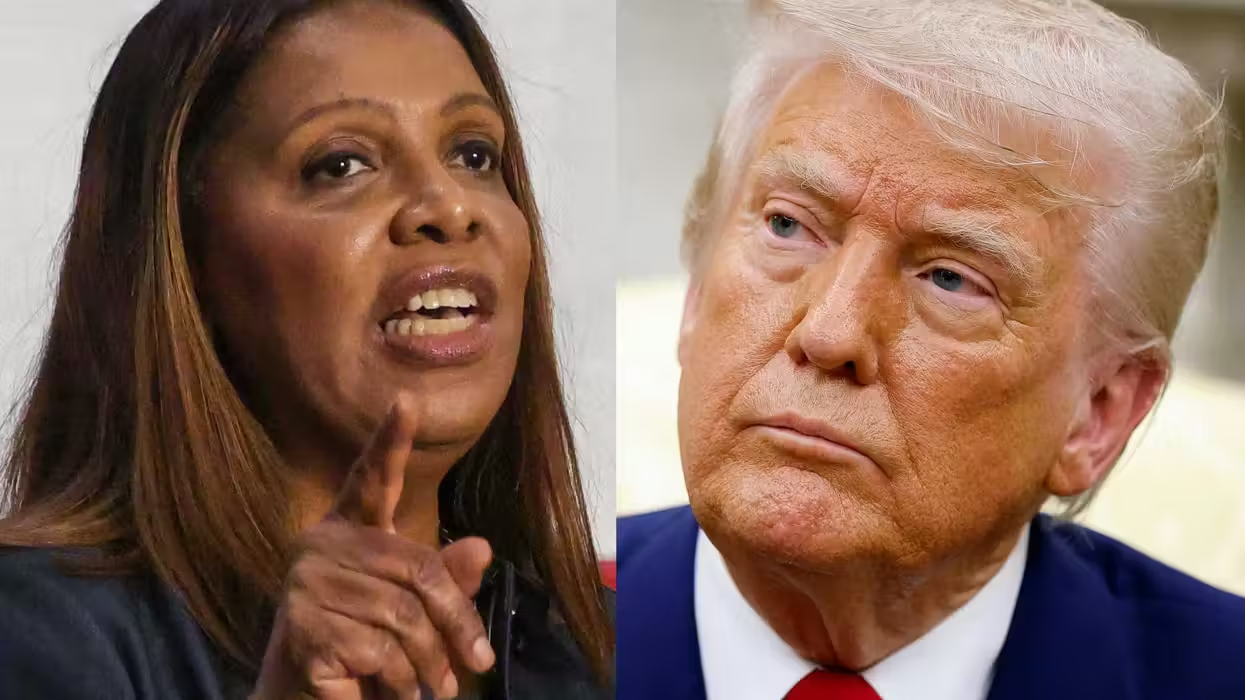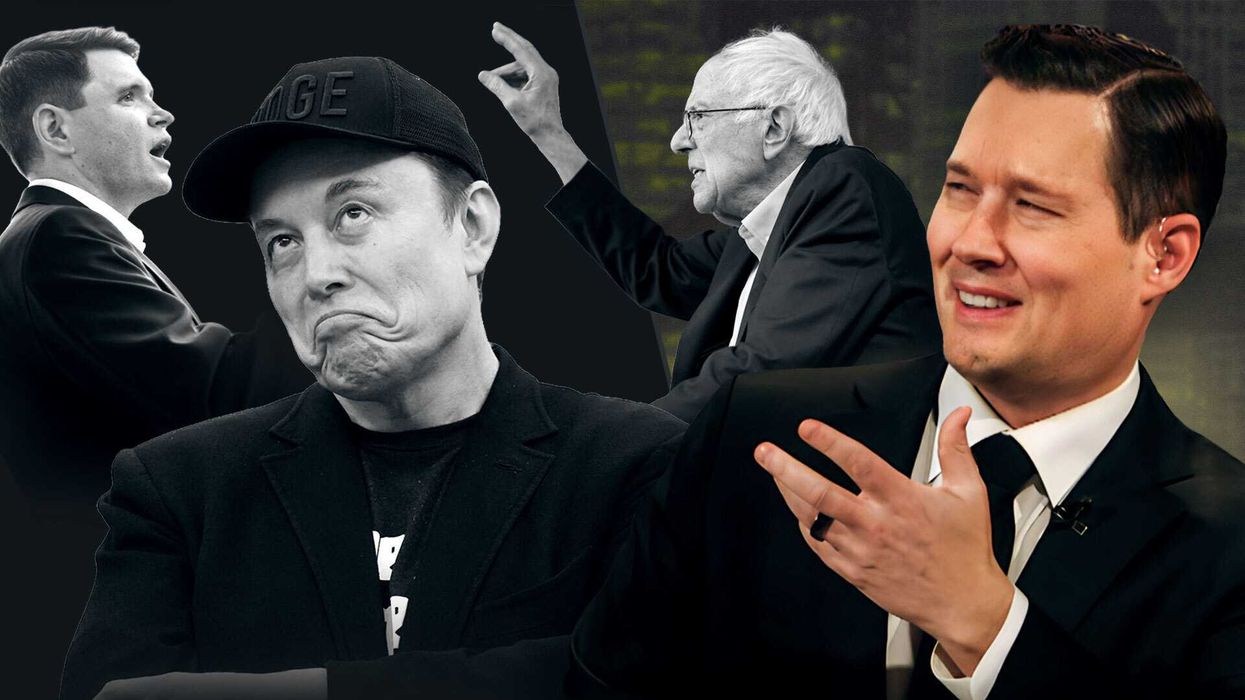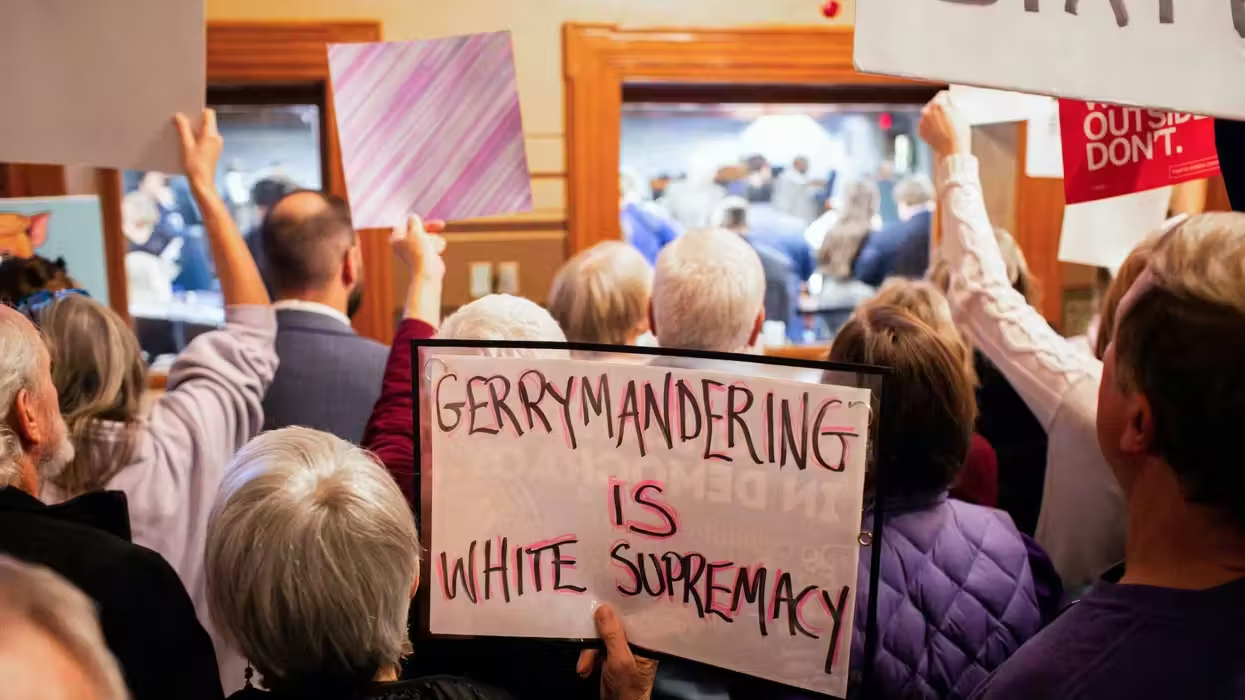
© 2025 Blaze Media LLC. All rights reserved.
Liberal or Conservative? Both Sides Trying to Claim 'Hunger Games' As Their Own -- Why?
March 19, 2012
"The political commentary is not as cut and dried as 'Conservative vs. Liberal'"
The New York Times best-selling series "The Hunger Games" by Suzanne Collins makes it to the big screen this week, meaning the audience made aware of the book's dystopian sentiments is bound to expand from its already more than 23.5 million copies sold.
The book is popular across age groups -- although it is classified as young adult -- and even crosses party lines. Depending on who you talk to, liberals or conservatives, both groups seem to see their cause in the book. The Hollywood Reporter even pointed out, according to Amazon's top-selling cities list, that the book is popular in "West Coast cities with strong technology economies and reputations as liberal hotbeds and sunbelt cities perceived as more conservative." This begs the question: Why is it resonating with both sides?

To answer, let's first recap the story.
The stage for the book is a futuristic view of the United States: a 12 district society called Panem with a central capitol. Each district has a staple duty or good to produce and some are more well-off than others. The Capitol represents the elites and oppressors who are obsessed with outward appearance and gorging themselves on the finer things in life (it is not unusual to see Capitol citizens have their skin dyed a certain color or taking drugs to force themselves to vomit so they can eat and drink more).
Natural disasters created this new society centered around the Capitol -- an event that is not described in depth in the book -- and an uprising against the Capitol led to the current fractured state of Panem. It is as a reminder of this failed uprising that the Capitol holds the Hunger Games: a forcibly televised event -- television and other communications are censored by the Capitol -- where each district submits a male and female "tribute" who will enter an elaborate arena and violently fight to the death until there is only one left standing.
Watch the trailer for the film for a bit more background on the state of Panem and the games:
While the concept may sound fantastical, its "Brave New World" and "1984" undertones have teenagers and adults enraptured. Why is the concept of the trilogy so popular? Joe Romm for Think Progress speculates it could be timing, with two politically charged events eerily similar to some ideas in the book. These modern day events being the Occupy movement and man-made global warming.
Here are some of Romm's thoughts:
The books also had some fortunate timing for the author in terms of catching the zeitgeist, since perhaps the core theme is the 99% (the 12 districts) vs. the 1% (Panem), the poor and underfed vs. the rich and overfed.I try to stay on top of the latest in post-apocalypse pop culture, mainly because there has been so little of it in recent years — see Apocalypse Not: The Oscars, The Media And The Myth of ‘Constant Repetition of Doomsday Messages’ on Climate. And when I heard the most popular new YA book series was built around food insecurity, I couldn’t resist. After all, as I’ve written in the journal Nature, “Feeding some 9 billion people by mid-century in the face of a rapidly worsening climate may well be the greatest challenge the human race has ever faced.”
The Hunger Games makes that challenge a literal and hyper-violent one. But like much (though not all) post-apocalyptic fiction, the book spends exceedingly little time actually explaining to anyone how we got in this mess.

Romm points out that only one sentence hints at how society as we know it came to be Panem. The mayor of Panem begins the description at the annual Hunger Games (Editor's note: emphasis added):
He tells the history of Panem, the country that rose up out of the ashes of a place that was once called North America. He lists the disasters, the droughts, the storms, the fires, the encroaching seas that swallowed up so much of the land, the brutal war for what little sustenance remained. The result was Panem, a shining Capitol ringed by thirteen districts, which brought peace and prosperity to its citizens. Then came the Dark Days, the uprising of the districts against the Capitol. Twelve were defeated, the thirteenth obliterated.
This sentence aligns with the global warming message present today, although it doesn't explicitly state how the warming was caused. As Romm points out, the book is set at the 74th annual Hunger Games and there is still a coal-mining district at this time. This would be District 12 where the heroine Katniss Everdeen resides.

But in a review of the book, the Christian magazine World doesn't see it the same way as Romm. It states that even with the strong, violent content in the book, which it condemns, there are redeeming qualities. For example, it leads readers to think:
Is government the answer? In this scenario, it’s the problem, and the media its willing servant. Will a return to stable families save us?
It may be of worth noting that religion is not addressed at any point in the series.
The message board for "independent, grass-roots conservatism," Free Republic," also has a discussion on the ultimate political goal of the book. One commenter writes, "I've heard some conservatives claiming that it's a politically conservative message, but I'm not convinced." Here are some of the responses:
- Onelifetogive: The first two seem to have(at least) an anti-big-govt bent. Those opposing the big-govt are the heros.
- IYAS9YAS: I took it as a struggle against oppression and a fight for freedom. I think the ending was a warning to not become that which you despised and fought against to begin with.
- Albionin: I think the theme of the books is you can’t keep the human spirit down forever. Eventually the natural yearning for liberty will overcome any repression. I also think the world of the Hunger Games is a fictional representation of North Korea. People there are running the gauntlet not to entertain the elite but to escape, but everything else is eerily similar to that country.
- Personal Responsibility: I’ve read all three books. The political commentary is not as cut and dried as “Conservative vs. Liberal”. It’s more like an all powerful state abusing its citizens, a spark ignites revolution and what the state will do to keep power. The message of the book is reminiscent of the message in 1984 -- all powerful government is inherently corrupt and evil -- but they don’t really get to that part of the story until the 2nd book and it’s not really emphasized until the 3rd.
So, do those with more liberal leanings connect with the "99 percent" and mild global warming message in the book? Do conservatives share sentiments for the citizens' rumblings against the oppressive, anti-capitalistic government? Or is it the common discontent toward a government that oppressively controls rations, forces sacrifice of 12 to 18 year-olds and limits communication and free speech that has audiences singing its praises?
The Hunger Games is the first book/movie in the trilogy. "Catching Fire" and "Mockingjay" are the second and third books, respectively.
Read and watch and let us know what you think.
Want to leave a tip?
We answer to you. Help keep our content free of advertisers and big tech censorship by leaving a tip today.
Want to join the conversation?
Already a subscriber?
more stories
Sign up for the Blaze newsletter
By signing up, you agree to our Privacy Policy and Terms of Use, and agree to receive content that may sometimes include advertisements. You may opt out at any time.
Related Content
© 2025 Blaze Media LLC. All rights reserved.
Get the stories that matter most delivered directly to your inbox.
By signing up, you agree to our Privacy Policy and Terms of Use, and agree to receive content that may sometimes include advertisements. You may opt out at any time.






